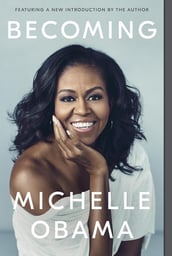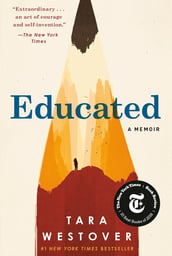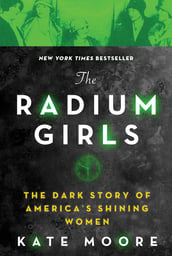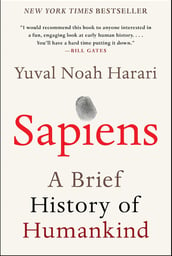Nonfiction Picks for Book Clubs: Thought-Provoking Reads to Inspire Conversation
When it comes to book club selections, nonfiction books often bring a unique flavor to discussions. They provide a blend of real-life stories, intriguing ideas, and new perspectives that can spark meaningful conversations. Here are some standout nonfiction picks guaranteed to engage your group and leave everyone eager for the next meeting.
BOOKS
Sofia
1/19/20255 min read
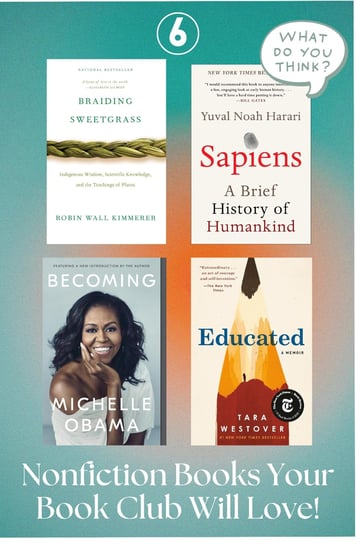

1. "Becoming" by Michelle Obama
Why it’s perfect for book clubs: Michelle Obama’s memoir takes readers on an intimate journey through her life, from her childhood in Chicago to her role as the First Lady of the United States. The book delves into topics like identity, resilience, and the challenges of balancing public and private life.
Discussion ideas:
How does Michelle Obama’s story resonate with your own experiences?
Discuss the impact of her initiatives like "Let’s Move!" and "Reach Higher."
How does her perspective on the American Dream evolve throughout the book?
2. "Educated" by Tara Westover
Why it’s perfect for book clubs: This memoir tells the powerful story of a young woman who escapes an isolated, survivalist upbringing to pursue education and self-discovery. It raises thought-provoking questions about family loyalty, personal growth, and the transformative power of learning.
Discussion ideas:
How does education redefine Tara Westover’s identity?
Discuss the tension between family loyalty and personal freedom.
What role does memory play in shaping Tara’s narrative?
3. "The Immortal Life of Henrietta Lacks" by Rebecca Skloot
Why it’s perfect for book clubs: Part biography, part scientific exploration, this book uncovers the story of Henrietta Lacks, a poor Black woman whose cells were taken without her knowledge, leading to medical breakthroughs. It tackles issues of ethics, race, and the intersection of science and humanity.
Discussion ideas:
What are your thoughts on the ethical issues surrounding Henrietta’s story?
How does this book address systemic racism in science and medicine?
Discuss the importance of consent and ownership in medical research.
4. "Braiding Sweetgrass" by Robin Wall Kimmerer
Why it’s perfect for book clubs: Written by a scientist and member of the Citizen Potawatomi Nation, this book explores the relationship between humans and the natural world. Combining Indigenous wisdom and scientific knowledge, it offers a poetic and hopeful perspective on sustainability and gratitude.
Discussion ideas:
How does Kimmerer’s perspective on the environment differ from traditional Western views?
Discuss the concept of reciprocity with nature.
How can we incorporate gratitude into our daily lives?
5. "The Radium Girls" by Kate Moore
Why it’s perfect for book clubs: This harrowing yet inspiring account tells the story of young women who painted radium watch dials during the early 20th century, unaware of the health risks. Their fight for justice paved the way for workplace safety standards.
Discussion ideas:
What does this book reveal about the power dynamics in the workplace?
How did the women’s courage change societal attitudes toward workers’ rights?
Compare the historical events to modern workplace challenges.
6. "Sapiens: A Brief History of Humankind" by Yuval Noah Harari
Why it’s perfect for book clubs: This sweeping exploration of human history examines how Homo sapiens evolved to dominate the planet. Harari’s insights into culture, economics, and technology provide endless discussion opportunities.
Discussion ideas:
Which of Harari’s arguments did you find most compelling or controversial?
How do the ideas in the book shape your understanding of human behavior?
Discuss the impact of shared myths and narratives on society.
Tips for Discussing Nonfiction Books in a Book Club
Focus on Personal Connections: Encourage members to share how the book’s themes resonate with their own lives.
Incorporate External Resources: Bring in related articles, videos, or interviews to enrich the discussion.
Explore Broader Themes: Use the book as a jumping-off point for conversations about societal or cultural issues.
Respect Different Perspectives: Nonfiction often sparks strong opinions. Embrace diverse viewpoints for a richer dialogue.
Nonfiction books can challenge your perspectives and deepen your understanding of the world. By choosing one of these thought-provoking titles, your book club is sure to enjoy engaging and meaningful conversations. Which one will you pick for your next meeting?
How to Start a Book Club: Tips & Tricks
If you’re just getting started with a book club, don’t forget to check out my detailed guide on how to launch your own. It covers everything from choosing members and selecting your first book to planning fun meetings and engaging discussions.
Listening Option: Audiobooks
Life can get busy, and finding the time to read might be tough. That’s why I recommend audiobooks, like those on Audible. You can listen to these books while commuting, exercising, or cooking dinner—so you never have to miss a book club discussion! Audible offers a 30-day free trial, so you can explore thousands of titles and keep up with your reading even when time is short.
Q&A Section
Q: How do I choose the first book for my book club?
A: Start with a book that has broad appeal and is discussion-friendly. Books that explore universal themes, have compelling characters, or are easy to read tend to be great first picks. My blog post on how to start a book club offers more detailed tips on selecting the perfect first read!
Q: What if our group doesn’t like the book we choose?
A: It’s perfectly normal for a book club to have mixed reactions. Use it as an opportunity to discuss why the book didn’t work. Sometimes a less-loved book can spark the most interesting conversations. And hey, there’s always the next book!
Q: How often should we meet?
A: Monthly is a good starting point. It gives members enough time to read (or listen!) to the book without feeling rushed. If your group wants to meet more often, you can always adjust to bi-weekly or even weekly.
Q: Can I listen to audiobooks if I’m short on time?
A: Absolutely! Audiobooks are a fantastic way to keep up with reading goals even when life gets busy. Services like Audible offer a wide selection of books, including many from this list, with a 30-day free trial for new users. Perfect for fitting a book into a hectic schedule.
Happy reading (and listening)!

